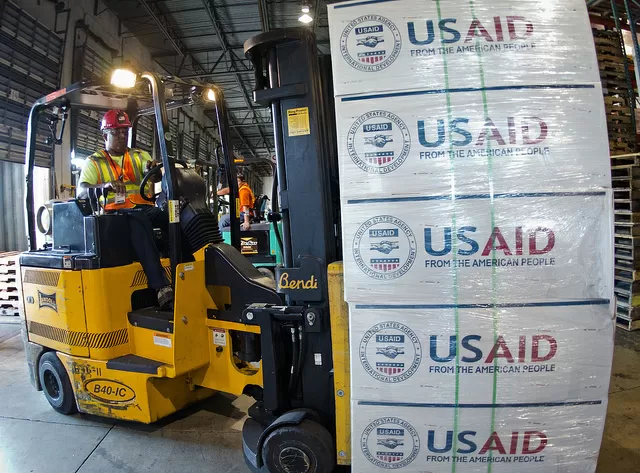As the world grapples with the full impact of the US decision to freeze foreign aid funding, the effects are beginning to be felt in Eastern Europe and Central Asia (EECA). This decision has sent shockwaves through organizations that have been working tirelessly to deliver life-saving healthcare, defend human rights, and strengthen democracy in the region. With years of progress at stake, these organizations are sending out a warning that the US decision could undo all the hard work that has been done.
In many countries in the region, such as Ukraine, Georgia, and Moldova, the US has been a strong and consistent partner in promoting the values of democracy, human rights, and good governance. The US has been a major contributor to foreign aid programs in these countries, providing crucial support for various initiatives. With the sudden halt in funding, organizations in these countries are facing the very real possibility of having to scale back or even shut down their vital programs.
One of the areas that will be particularly impacted is healthcare. With the US withdrawing its support, organizations in EECA are warning that they will not have the resources to continue their life-saving work. For years, these organizations have been providing essential medical services, such as HIV/AIDS treatment, tuberculosis treatment, and maternal and child health programs. In Ukraine alone, it is estimated that over 2.3 million people are living with HIV/AIDS, and without the support of the US, the country’s progress in combating this epidemic could be reversed.
Along with healthcare, organizations in EECA have also been instrumental in defending human rights and promoting democracy. Through their efforts, they have been able to hold governments accountable and advocate for the rights of marginalized communities. With the US decision to freeze funding, these organizations will face significant challenges in continuing their work. Without their support, governments may feel emboldened to limit the space for civil society and suppress voices that speak out against injustice.
Furthermore, the freeze of foreign aid funding also has a ripple effect on the economy of these countries. Many of the programs supported by the US aid have a multiplier effect, creating jobs and boosting economic growth. With the sudden stoppage of funding, not only will these programs suffer, but the wider economy will also feel the impact. This could lead to higher unemployment rates, increased poverty, and further exacerbate the socio-economic challenges faced by the region.
Moreover, the US decision also has wider implications for the global community. EECA is strategically located between Europe and Asia, making it a crucial region for regional stability and security. The US has been a key partner in promoting stability and countering threats such as terrorism, corruption, and transnational crime. However, without the necessary resources, these efforts will be severely compromised, posing a risk to the entire region.
It is crucial to recognize that the US decision to freeze foreign aid funding has far-reaching consequences. It not only affects the countries in EECA but also has implications for global security and stability. To address this issue, it is essential for the international community to step up and fill the gap left by the US. Other donor countries and organizations must increase their support to ensure that the progress made in the region is not lost.
In addition, governments in EECA must also take responsibility and prioritize investing in their own healthcare systems and democratic institutions. This will help to reduce their dependence on foreign aid and ensure the sustainability of their programs in the long run.
It is a challenging time for organizations and individuals in EECA, as they face the uncertainty of what the future holds. However, despite the setbacks, they remain determined to continue their vital work and make a positive impact in their communities. Their resilience and dedication are a testament to the importance of foreign aid and the need for continued support in these trying times.
In conclusion, the US decision to freeze foreign aid funding is a setback for the progress made in Eastern Europe and Central Asia. The impact will be felt in various sectors, including healthcare, human rights, and economic development. It is essential for the international community to step in and support the region, and for governments in EECA to prioritize investing in their own development. Together, we can ensure that the hard-won achievements in the region are not undone and that the people of EECA continue to receive the necessary support for a better future.



